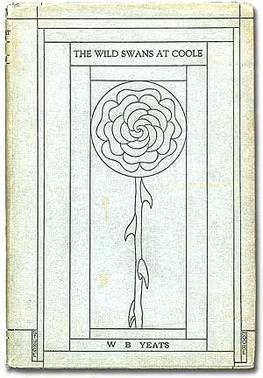Creation or The Creation may refer to:
Swimmer most commonly refers to a participant in:
Swan song is a reference to an ancient, controversial belief that swans sing just before they die, and also an idiom for a final performance or accomplishment.
A swan is a bird of the genus Cygnus or Coscoroba.
A dream is a succession of images, ideas, emotions, and sensations that usually occur involuntarily in the mind during certain stages of sleep.
5 is a number, numeral, and glyph.
De profundis refers to Psalm 130, traditionally known as the De profundis from its opening words in Latin.
Voyage(s) or The Voyage may refer to:
The common nightingale is a songbird found in Eurasia.
Pharaoh is the title of ancient Egyptian monarchs.

The Wild Swans at Coole is the name of two collections of poetry by W. B. Yeats, published in 1917 and 1919.
Howl most often refers to:
"The Wild Swans at Coole" is a lyric poem by the Irish poet William Butler Yeats (1865–1939). Written between 1916 and early 1917, the poem was first published in the June 1917 issue of the Little Review, and became the title poem in the Yeats's 1917 and 1919 collections The Wild Swans at Coole.

"On being asked for a War Poem" is a poem by William Butler Yeats written on 6 February 1915 in response to a request by Henry James that Yeats compose a political poem about World War I. Yeats changed the poem's title from "To a friend who has asked me to sign his manifesto to the neutral nations" to "A Reason for Keeping Silent" before sending it in a letter to James, which Yeats wrote at Coole Park on 20 August 1915. The poem was prefaced with a note stating: "It is the only thing I have written of the war or will write, so I hope it may not seem unfitting." The poem was first published in Edith Wharton's The Book of the Homeless in 1916 as "A Reason for Keeping Silent". When it was later reprinted in The Wild Swans at Coole, the title was changed to "On being asked for a War Poem".
Wild Honey or Wildhoney may refer to:
Night is the period in which the sun is below the horizon.
Greed is an excessive desire to possess wealth or goods with the intention to keep it for one's self.
This page is based on this
Wikipedia article Text is available under the
CC BY-SA 4.0 license; additional terms may apply.
Images, videos and audio are available under their respective licenses.

